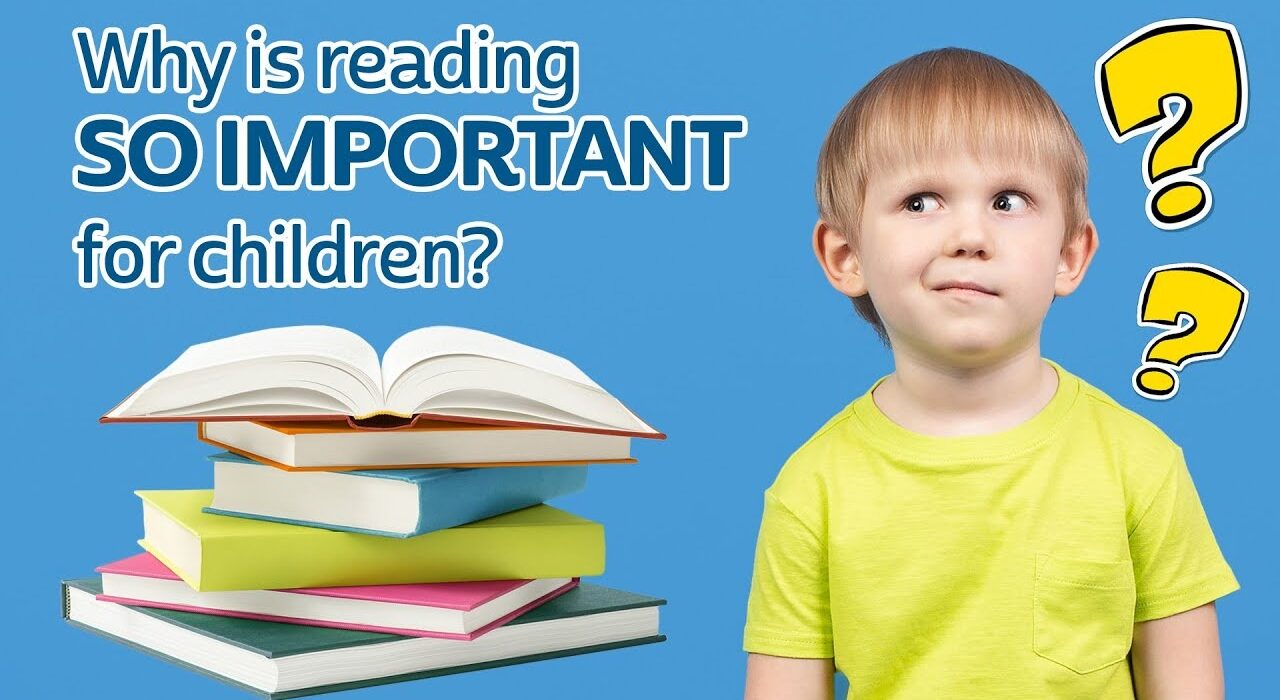In a world full of screens and instant entertainment, it’s easy to overlook the simple, timeless joy of reading. But for children, reading is more than just a pastime—it’s a vital foundation for lifelong learning, growth, and emotional well-being.
Let’s explore why reading is so important for children, and how it shapes their development in powerful, lasting ways.
🧠 1. Boosts Brain Development
From the moment a child is born, their brain is rapidly growing and forming new connections. Reading fuels this development:
Language and Vocabulary: Hearing and reading words exposes children to a broader vocabulary than daily conversation alone. This strengthens their ability to communicate clearly and effectively.
Cognitive Skills: Understanding stories enhances memory, logical thinking, and problem-solving.
Concentration: Focusing on a plot teaches patience, discipline, and the ability to sit still—skills that are essential in school and life.
“Reading aloud with children is known to be the single most important activity for building the knowledge required for eventual success in reading.” — National Institute for Literacy
🎓 2. Lays the Foundation for Academic Success
Children who read regularly tend to perform better in school. Why?
Improved Comprehension: Reading strengthens a child’s ability to understand and analyze information—skills that transfer across subjects.
Better Writing Skills: Exposure to sentence structure, grammar, and varied vocabulary enhances writing abilities.
Math and Science Too: Even subjects like math and science require good reading skills to understand instructions, word problems, and concepts.
Early readers often develop a love of learning , giving them a head start that continues to benefit them throughout their education.
❤️ 3. Fosters Emotional Intelligence
Books are not just educational tools—they’re emotional ones too. Through reading, children:
Explore Emotions: Characters deal with joy, sadness, fear, and hope, helping children understand and name their own feelings.
Build Empathy: Seeing the world through someone else’s eyes—whether it’s a dragon, a prince, or a kid from a different culture—develops compassion.
Feel Understood: Relating to characters makes children feel less alone in their experiences, especially during tough times.
Reading becomes a mirror in which kids see themselves, and a window through which they see others.
🌍 4. Expands Worldview and Imagination
Books open up new worlds. Whether it’s outer space, ancient history, or imaginary kingdoms, reading:
Sparks Creativity: Children imagine scenarios, places, and characters far beyond their own experience.
Introduces New Ideas: They learn about different cultures, beliefs, and perspectives.
Encourages Curiosity: A curious mind is a powerful tool—and reading naturally encourages children to ask “why,” “how,” and “what if.”
Every story is a journey that teaches kids to dream big and think beyond limits.
👨👩👧 5. Strengthens Relationships and Confidence
Reading isn’t just a solo activity. It’s also a beautiful way to connect:
Bonding Time: Reading aloud with children creates shared memories and trust.
Routine and Comfort : Bedtime stories can be calming, making children feel safe and loved.
Sense of Achievement: As kids learn to read on their own, they gain confidence and independence.
The sense of pride when a child reads their first book on their own is a milestone that fosters lifelong self-esteem.


